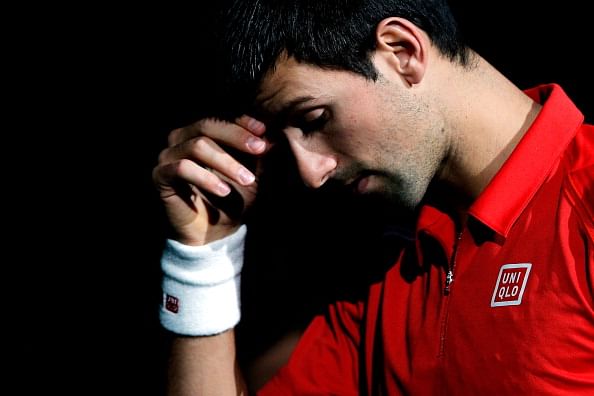
Novak Djokovic: The Greater Picture

Coping with victory is easy, but how does one cope with loss? Especially if the said loss comes tagged with accusations and allegations about the player’s lack of commitment towards the match and most importantly, towards the sport itself. Leaving aside the player’s reaction to such harsh a review of his performance, the question that merits asking is – how do the fans deal with the situation? Do they brush it off, saying critics don’t really have much to do, or do they brood about it?
Suffice to say, it won’t be easy to shrug the whole episode off just as it won’t be difficult to sit and brood about it. Not because there’s no element of truth in these accusations, but because of the simple fact that it’s Novak Djokovic who’s on the receiving end of these negativities. A player who is known to have a sportsmanlike attitude second to none, with a determination to succeed rivaled by only the choicest few; a player who entertains his fans, both on and off court, and a professional who applauds his opponent’s shot-making, no matter personal results. Nole has never been one to back off in case of a challenge, however hard his critics try and argue otherwise.
His loss to Sam Querrey in the second round of the Paris Masters might indeed come as a huge shock, but when someone raises the issue of a player purposefully letting the match go, the accusation doesn’t just remain restricted to that one player. It then invariably goes on to involve the opponent too. Drawing inference, in this case, it would mean that Sam Querrey can only win a match when his opponent decides to forgo his commitment to play a fair and square game.
So is this right? Is Sam Querrey so without talent that he cannot contest the maximum quota of sets to put him through or was Nole so affected by personal turmoil that he couldn’t consolidate his first-set success in the latter stages of the game. It definitely has to be one, for it can’t be both. Or it can most definitely be neither, but a simple case of one player finding his rhythm to suit his opponent’s game-plan.
If it were all about taking stances, then this would be the right time to do so. Because definitely, spreading such coarse judgements about a player won’t exactly stop with Nole. On the contrary, each time a lower ranked player upsets a higher ranked opponent, this situation will arise and go on to spoil the whole excitement of watching the matches because the critics’ all-knowingness would negate all other possibilities for the higher ranked player losing his match and just focus on a so-called ‘tanking’ episode.
However even as cynics argue about tennis players forgoing a match, the irony that raises itself is if players were so keen on fixing results, why would they argue for increased professional remuneration with the authorities. Unlike other sports where fixing matches is easy, tennis still remains a sport where the transparency levels are higher with the players themselves arguing in favour of authorities coming with better channels to provide and recommend clear and qualitative tennis. Such being the case, the constant derogatory attitude of critics is frustrating and annoying to say the least; not to forget, extremely demeaning.
Sportsmen are not invincible. That they are considered to be all-powerful is a personal vote dedicated to them by their fans but in the larger sense, they are as human as the next individual. Thus it’s only rational that we accept their losses just as we accept their victories. They might be unwelcome, they might not be acceptable but there’s little that anyone can do about these, except accept it. And for precisely this reason, maybe even Roger Federer fans could stop thinking about a ‘what if’ situation if their idol was playing at Paris with a chance to regain his world number ranking.
But that remains a story to be discussed later…